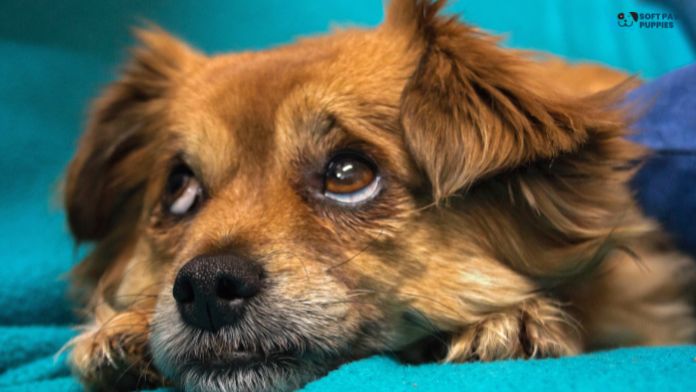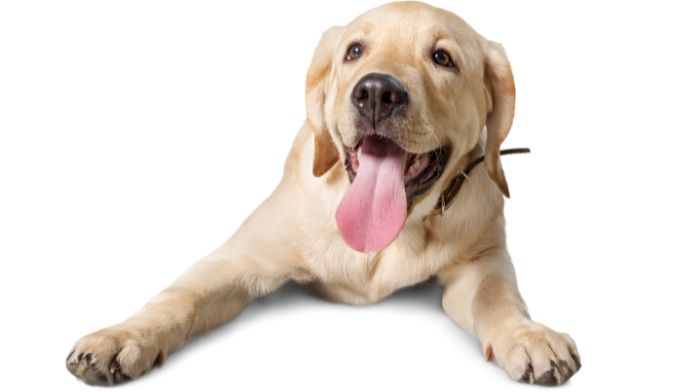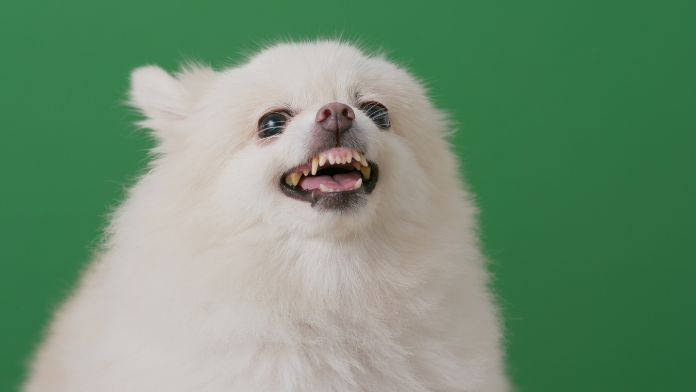
In the dog behaviour world, our furry companions engage in countless quirky and puzzling actions. One such behaviour that often leaves pet owners both amused and perplexed is the act of a puppy sitting on the head of an older dog.
While it may appear comical at first glance, several underlying reasons exist for this peculiar behaviour. In this article, we’ll delve into the fascinating world of canine communication and hierarchy to understand why puppies sometimes choose to perch themselves on their elder’s cranium. So, let’s explore this canine conundrum step by step.
Why Does My Puppy Sit on My Older Dogs Head?

Have you ever wondered why your adorable puppy has a habit of sitting on your older dog’s head? It’s a peculiar behaviour that often amused and puzzled dog owners.
This comprehensive article will delve into this intriguing topic, exploring the reasons behind this behaviour, what it means, and how to respond. So, let’s unravel why your puppy chooses to perch on your older dog’s head.
Comprehension Canine Behavior
Before we dive into why your puppy might use your older dog’s head as a perch, it’s essential to grasp some fundamental aspects of canine behaviour.
Dogs are social animals with intricate communication methods, often relying on body language to convey their intentions and feelings. Every wag of the tail, head tilt, or body positioning can carry a significant message.
The Comfort Factor
One plausible explanation for your puppy’s head-sitting antics lies in the realm of comfort. Puppies are naturally drawn to warmth and soft spots; your older dog’s head provides both. It’s like finding the cosiest seat in the house.
The proximity to your older dog’s ears also offers comfort, as it muffles outside noises, creating a secure, den-like environment.
Observational Learning
Dogs, like humans, learn from observation. Your puppy might have observed your older dog perching or sitting on various objects, including your older dog’s head, and decided to mimic this behaviour.In the eyes of a curious puppy, copying the actions of the older, wiser dog is a fun and educational endeavour.
Asserting Dominance
Social hierarchies often influence canine behaviour. A puppy sitting on an older dog’s head could be a subtle display of dominance.
By positioning themselves higher in the hierarchy, puppies may assert their confidence and try to establish their place in the pack. However, this is not necessarily a cause for concern as long as it doesn’t escalate into aggressive behaviour.
Seeking Attention
Puppies are notorious attention-seekers, and sitting on your older dog’s head could be their way of vying for your attention. If your puppy senses that this behaviour results in you petting or giving them treats, they are more likely to repeat it. Their charming way of saying, “Look at me, I’m adorable!”
Playfulness and Bonding
Sometimes, the simplest explanation is the correct one. Puppies are exuberant and playful by nature. They may see sitting on your older dog’s head as an entertaining game or a form of bonding. It’s their way of initiating playtime or strengthening their connection with their older companion.
When to Be Concerned
While the sight of your puppy sitting on your older dog’s head may be endearing, there are situations where it’s essential to monitor their behaviour. If your older dog appears distressed, agitated, or uncomfortable with this behaviour, it’s crucial to intervene and ensure both dogs feel safe and secure.
How To Tell If Your Older Dog Is Angry About This Behavior

This behaviour will likely get on your older dog’s nerves, but some older dogs don’t seem to mind about a puppy sitting on their head. It is just bet to monitor your older dogs’ demeanor to avoid any one of them from getting hurt;
- Watch out for your older dog’s body language. If the older dog is wagging its tail and seems relaxed, he enjoys the gesture, but when he holds its tail stiff and low with its ears back, he is annoyed.
- The vocalization also matters. If your dog is making warm and inviting sounds or a playful bark, it is enjoying the attention; however, you can tell your older dog is about to lose with the puppy if it starts growling and snarling in a low tone.
- Make sure to take note of your older dog’s facial expression. A sign that your dog is happy is if its face is relaxed and its mouth open in excitement; however, a pissed-off dog will have squinted eyes and will open its mouth in a way that its teeth or fangs are on display.
- Pay attention to how the older dog reacts to physical contact with the puppy. If they move away from the puppy or growls, it is definitely angry, but your older doggo doesn’t mind and even loves it when they initiate the contact.
FAQ
Why Does My Dog Sit On Another Dog’s Head?
Many dogs still have the habit of mounting or climbing on the heads of other dogs. For obvious reasons, pups or younger canines may also perch on the head of an older dog. When you bring a puppy home, they could find it difficult to comprehend what is happening around them.
Why Does My Puppy Sit On My Older Dog?
If your household recently welcomed a new dog, keep a close eye on your dogs to see if they begin to sit on one another. The puppy may be playing or attempting to show dominance over the older dog by sitting on him. Ensure you keep an eye on them both in case either becomes hostile.
Why is My Dog Not Lifting His Head?
Check your dog’s face and neck for bite marks if you notice that his head is not being raised. To identify the underlying cause and administer the proper medication, it is critical to speak with your veterinarian if your dog is consistently drooping his head.
Conclusion
The habit of puppies sitting on older dogs’ heads may seem peculiar, but it’s a relatively common and harmless behaviour. Understanding the reasons behind it, monitoring their interactions, and ensuring both dogs are comfortable are key to a harmonious household.
Remember, it’s just one of the many quirks that make our canine companions endearing. So, the next time you catch your puppy perched on your older dog’s head, you’ll better understand why they do it.






